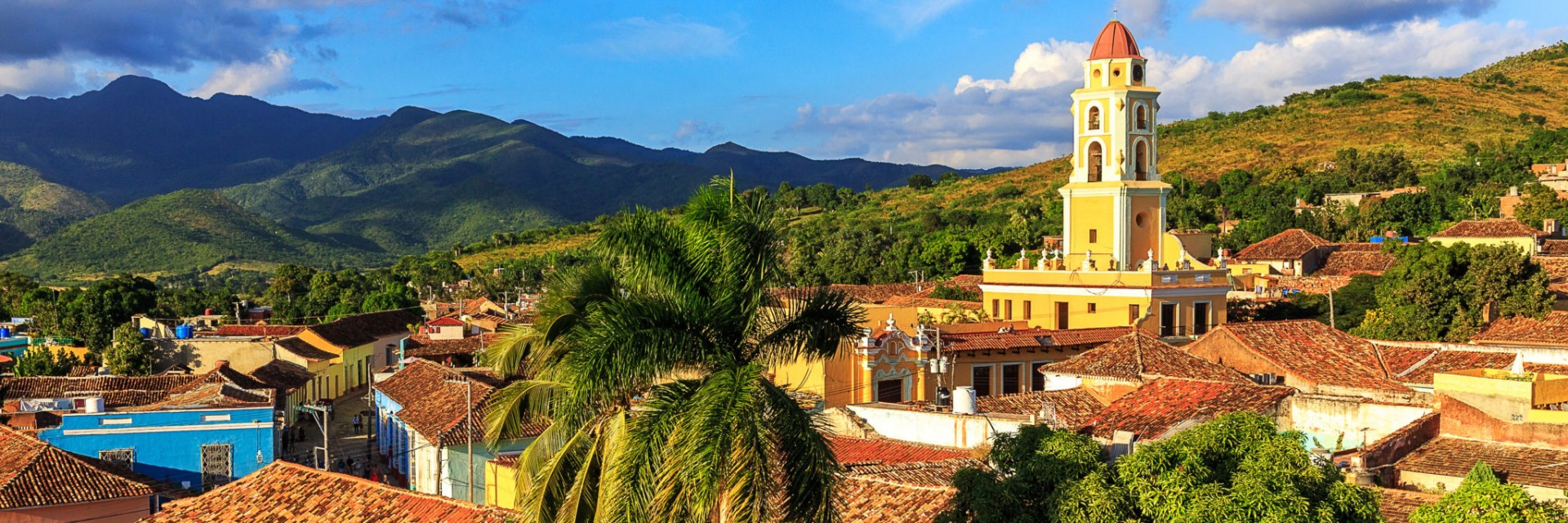 COSTARÁ A RUSIA 2,000 MILLONES DE EUROS LA REHABILITACIÓN FERROVIARIA DE CUBA.
COSTARÁ A RUSIA 2,000 MILLONES DE EUROS LA REHABILITACIÓN FERROVIARIA DE CUBA.
2,000 millones de euros es el monto que desembolsará Rusia para recuperar y modernizar el sector ferroviario de Cuba. El proyecto, que abarca desde la rehabilitación de vías férreas hasta el suministro de vagones y locomotoras, supondría una revolución en lo que tiene que ver con el transporte de cargas y pasajeros en la nación caribeña, según explicó el vicepremier ruso Yuri Borísov tras reunirse hace unos días en Moscú con su par cubano, Ricardo Cabrisas. Entre otras cosas, el funcionario comunicó que la ejecución del plan está prevista en un plazo de 7 años.
En 2018 “el Estado cubano ha abierto la red ferroviaria a la inversión extranjera”, teniendo Rusia una posición privilegiada para hacer negocios en este y otros sectores de la economía isleña, fruto de perdonarle el 90% de la enorme deuda contraída con la Unión Soviética.
De acuerdo al especialista en temas cubanos Antonio Santamaría García, miembro del Consejo Superior de Investigaciones Científicas de España de los “entre 12.000-13.000 kilómetros de ferrocarril” con los que llegó a contar el país latinoamericano, “la red más densa de toda América Latina”, quedan solo actualmente en servicio “entre 8.000 y 8.500 kilómetros”. “Lo que sucede es que desde la crisis de los años 90, con la desaparición de la Unión Soviética, dejó de renovarse tanto la infraestructura como el parque ferroviario, llegando a una situación en la cual se han deteriorado prácticamente todos los niveles de transporte”, dijo el experto.
Las estadísticas del transporte de mercancías tampoco son “demasiado descollantes”, lo cual tiene que ver, entre otros factores, con el desmantelamiento de centrales azucareras a raíz de la deriva de la industria, otro fruto de la caída de la URSS. Pero la situación está cambiando, y lo está haciendo “bastante rápido”. Y es que ya llegaron a Cuba 43 locomotoras rusas “de las 75 previstas hasta 2021”. El último lote de 7 locomotoras y un ferrobús desembarcó en La Habana este 3 de enero. Además, el país recibió desde 2016 varios centenares de vagones, algo que se continuará según Santamaría.
 IT WILL COST 2,000 MILLION EUROS TO RUSSIA THE CUBA RAILWAY REHABILITATION.
IT WILL COST 2,000 MILLION EUROS TO RUSSIA THE CUBA RAILWAY REHABILITATION.
2,000 million euros is the amount that Russia will disburse to recover and modernize the railway sector in Cuba. The project, which covers everything from the rehabilitation of railways to the supply of wagons and locomotives, would mean a revolution in the transport of cargo and passengers in the Caribbean nation, explained Russian Deputy Prime Minister Yuri Borisov after meeting. a few days in Moscow with his Cuban counterpart, Ricardo Cabrisas. Among other things, the official informed that the execution of the plan is planned within a period of 7 years.
In 2018 “the Cuban State has opened the railway network to foreign investment”, with Russia having a privileged position to do business in this and other sectors of the island economy, the result of forgiving 90% of the enormous debt owed to the Soviet Union .
According to Cuban specialist Antonio Santamaría García, member of Spain’s Higher Council of Scientific Research of the “between 12,000-13,000 kilometers of railroad” with which the Latin American country came to count, “the densest network in all of Latin America “, they are only currently in service” between 8,000 and 8,500 kilometers “. “What happens is that since the crisis of the 90s, with the disappearance of the Soviet Union, the infrastructure and the railway park stopped being renewed, reaching a situation in which practically all transport levels have deteriorated” said the expert.
The statistics of the transport of merchandise are not “too outstanding”, which has to do, among other factors, with the dismantling of sugar mills as a result of the drift of the industry, another fruit of the fall of the USSR. But the situation is changing, and it is doing “pretty fast.” And it is that 43 Russian locomotives “of the 75 planned until 2021” arrived in Cuba. The last batch of 7 locomotives and a ferrobús landed in Havana on January 3. In addition, the country received several hundred wagons since 2016, something that will continue according to Santamaría.
Agencies/ Sputnik/ Víctor Ternovsky/ Internet Photos/ Arnoldo Varona/ www.TheCubanHistory.com
THE CUBAN HISTORY, HOLLYWOOD.







